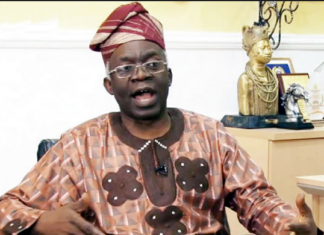There have been three unmistakable landmark moments in the annals of national elections, when the electorate almost unanimously opted for presidential candidates they deemed ‘game-changers’. The first was on June 12, 1993. That particular election was won by the business mogul and philanthropist extraordinaire, Moshood Abiola. It recorded several ‘firsts’.
It was the first time Northerners preferred a southern candidate in their numbers over a Northern candidate. It was the first time a major presidential candidate lost his ward, local government council and state to his opponent, and the first time a winning ticket comprised a presidential candidate and a running mate of the same religion. It was the first time a Yoruba man won a state in Igbo land and equally shared honours in the remaining state where the vice-presidential candidate of the other party hailed from. But, unfortunately and tragically, the military powers-that-be annulled the poll and rubbished the tremendous march towards building a nation-state Nigerians had freely and collectively undertaken.
Almost 18 years later, a political Cinderella, who had wowed his audiences with touching tales of his shoe-less beginnings, was handed another pan-Nigeria mandate. Great things were expected of him because he was the first graduate (and a Ph.D holder at that) to become president. But the hopes and expectations of Nigerians were dashed yet again and he was made to pay a hefty price for his acts of commission and omission when he sought a second term in office.
The crushing electoral defeat recently inflicted by the All Progressives Congress (APC) on the Peoples Democratic Party (PDP) marks the third time Nigerians are breaching tribal and religious defensive fortifications. Rather paradoxically and ironically, considering his contentious anti-democratic image back when he was an autocratic military head of state, expectations are already running high that Muhammadu Buhari’s electoral victory will permanently change the nation’s democratic ethos for the better.
With a combination of uncommon charisma, courage, self-discipline, integrity, doggedness and incorrigibility rolled into one, Buhari is indeed very suitably qualified to lead this nation at its most critical time in history. What, with deepening and widespread poverty in the midst of plenty, general insecurity, burgeoning youth and graduate unemployment, corrosive corruption and a comatose domestic currency.
Buhari isn’t an ‘accidental’ president. His rugged determination to contest again after three unsuccessful attempts must be driven by a deep-seated passion for the positive contributions he wants to make to governance. The sweet smell of a fresh start is already in the air. For example, between April 1 – when the Independent National Electoral commission (INEC) declared Buhari the winner – and the state elections held on April 11, there was a remarkable drop in the acts of impunity by the coercive agencies of state.
Quite surprisingly, many people have failed to notice that new political alignments were forged in the same crucible that old animosities and mutual suspicions were crushed. The 2015 elections witnessed two erstwhile sworn political enemies, the core North and the South West, successfully aligning forces for the very first time in the nation’s history to synthesise a winning presidential candidate on a progressives platform.
The late Ikenne sage, Obafemi Awolowo, must be beaming a smile of satisfaction in his resting place because what played out was exactly ‘prophesied’ by him at the last congress of the now-rested Unity Party of Nigeria (UPN) in Abeokuta, where he said: “…we shall meet…at a time the best of the opposition will meet to form a government”.
There’s also the not-too-obvious but still very significant alignment of forces by two old political enemies, the South East and the South South. Forgotten and forgiven(?) were the vexatious issue of “abandoned property” that has been sticking out like a sore thumb and cries of “Igbo irredentism and hegemony”.
There’s indeed no reason an Igbo man shouldn’t win a local government council or state or national election outside his South East enclave and why the Hausa or Yoruba or Urhobo, among others, cannot do the same. It happened in the once-upon-a-time good old Nigeria and certainly seems set to happen again in the happening new Nigeria.
In a way, June 12 marked the 40 days the Israelites would travel as the crow flies from Egypt to arrive untested and unheralded in their Promised Land, but Buhari’s March 28 is symptomatic of the tortuous 40 years it ultimately took them after maturation through diverse experiences in the wilderness. It is indeed morning in a new Nigeria.
• Ichie Okoye wrote in from Lagos.













